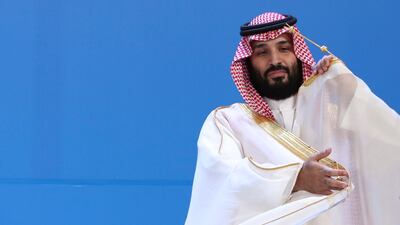Saudi Arabia on Wednesday announced the end of a widespread anti-corruption probe ordered by Crown Prince Mohammed bin Salman that gathered nearly 400 billion Saudi riyals ($106 billion) through settlements with some of the country's elite.
Senior princes, businessmen and officials were among the 381 people the royal court said it summoned, some as witnesses, since the widespread crackdown on corruption began more than a year ago. The campaign began in November 2017 when hundreds of the country's elite, including Saudi billionaire Prince Alwaleed bin Talal, were held and questioned at the opulent Ritz Carlton in Riyadh.
Of that group, 87 people confessed to charges against, including abuse of power and stealing from state assets, and reached settlements that included forfeiture of goods. Others remained detained under investigation for months.
The public prosecutor has refused to settle the cases of another 56 that have a preexisting criminal record, another eight have refused to settle and remain accused of corruption. The remainder of those rounded-up were indicted.
During the probe more than 400 billion Saudi riyals were recovered by the state "in the form of real estate, companies, cash, and other assets,” the Saudi state news agency reported.
Even government workers were not safe from the corruption probe as just earlier this week 126 workers at the municipality were suspended on charges of corruption and abuse of power.
The probe is widely popular among younger, more disenfranchised Saudi youths as they have been promised that reclaimed assets will go towards building Saudi projects that will benefit lower and middle-income families.
It is unclear if the announcement will affect the specialised departments in the public prosecutor's office that Saudi King Salman tasked with the investigation and prosecution of corruption cases through lower-level offences.
The anti-corruption campaign is among a series of reforms led by Crown Prince Mohammed since he assumed his role as the next in line to the Saudi throne in June 2017. The sweeping changes he’s enacted as part of the Saudi Vision 2030, a reform programme looking to overhaul the oil-based economy, has included the arresting clerics, opening cinemas in the country and ending the ban on women driving.
Part of the driving force behind the long overdue reforms is Saudi Arabia’s extremely young population, who no longer take cradle to grave government social welfare as granted.

